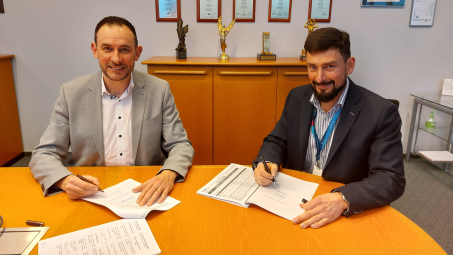Why is Scrum Master a full-time role?
Working as a Scrum Master comes very close to conducting a symphonic orchestra– it only seems like light and frivolous brandishing the baton. In fact, these merry swings only veneer an arduous endeavor followed by tons of knowledge and multitasking – do not look away from the harp, keep an eye on the piano, what are the strings doing?! It is, thus, enough for one person to conduct the development team, but what happens before one sits on the Scrum Master’s chair?

In Agile management systems roles
division is of high priority – it allows tasks to swiftly flow between their
holders whenever the status of them is closed and ready to be passed on. The
structure of the whole team must remain unwavering because Scrum Master’s
achievements depend on fluency of the system. In truth, the whole orchestra
plays along only after thorough attuning all the instruments.
Why scrum master is a servant
leader
The fact that Scrum Masters all over
the world deconstructed the well-settled employee-boss system, brought about a
kind of a standard of working not only in the industries in need of Agile management (like the new technologies) but across many non-Agile sectors. It
changed the relation between the worker and the boss from dictating to servant.
Scrum Master as a servant leader
recalls rather a picture of a professor among his/her students than a boss
wandering about and peeping from behind the shoulder to point people’s mistakes
out. Especially at work with electronic devices and software development, when
the pace is rapid and projects like veering astray after one Sprint, the team
needs the leader who will propagate the supportive attitude and assure of
continuous following the Scrum guidelines. He or she is the informative hub for
the Product Owner, the company and the team. This is a contradiction of someone
who constantly asks: “Why is the job not done yet?”. Instead, Scrum Master will
ask: “What hampered on the way to close your task? Can we think it through?”
The high position of the
servant
The proactive and helpful approach
might not be the stereotype brought to our minds when thinking of managers –
but, undoubtfully, it is changing. Meanwhile, Scrum Master must show those
qualities indisputably and, moreover, that is a person who must hold to quite a
high position in the structure of a company. Does it entail humility, then?
Probably. A Scrum Master in power is not definitely someone who exerts their
authority to achieve; they are managers who underpin the importance of
everybody’s contributions to the end value of a project. Their authority props
up their esteem, even if the priority stays the project, not regard and
popularity. Everybody’s role is equal, even the Scrum Master’s.
Depending on the position in a
company’s structure, Scrum Master might or might not be a decisive individual.
Even if they are not, they have to be in possession of the tools which enable
them to deliver the tasks and execute them from the team. As the whole art of
Scrum managing is about keeping the system agile, there should be no
impediments (especially bureaucratic ones) which will hamper the fluency.
Moreover, implementing Scrum cell
into a company entails engaging more sectors than the team itself. Picture the
situation when the team does not have their own budget, but they found
themselves in need of a new tool which will boost their efficiency. The
company’s task is to do the utmost to provide its Scrum Master a proper work
ecosystem.
Not mastering the industry
The core competencies of the person
who guides the development team fall near such abilities as: meetings
moderation, dialectic and negotiating. It has nothing to do with the expertise
of the subject concerning the industry. Scrum Master who manages in the new
technologies does not have to know what’s what in digital novelties – in theory… The more complex and risk
encumbered the area is, the better for Scrum Master to know how to navigate
between the terms and smart talks.
Skipping all which one would need to
know about engineering or other area, it still remains a lot for one person to
hold. Scrum Master presents what many managers call authoritative and normative
attitude, while Scrum calls it agile. As it looks, Scrum Master is a full-time
role not because of multitasking nature of the job, but because of a perfect
intersection of the skills which refer to understanding people and to the
detailed knowledge.








